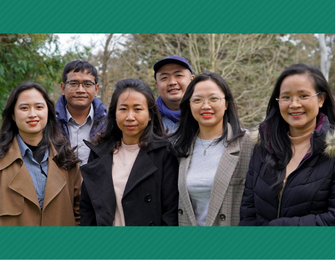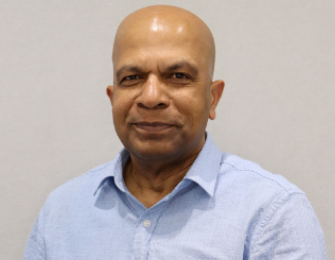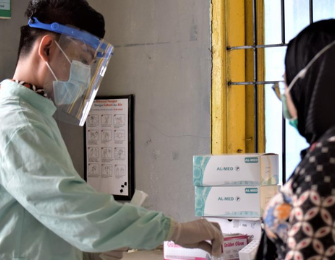
First published on the ANU NECPH website.
COVID-19 has shown us that infectious diseases know no borders. Globally, we are more interconnected and mobile than ever before, making a health threat anywhere a health threat everywhere.
Field epidemiologists are uniquely equipped with skills to detect and control diseases locally, and combat them if they become epidemics or pandemics. Ensuring adequate trained field epidemiologists both in your home country and worldwide is therefore vital for global health security.
The ANU Master of Philosophy (Applied Epidemiology), also known as the MAE, encourages health security beyond our borders by training health professionals from our ASEAN neighbours. This year six students commenced their MAE studies as part of an ongoing ASEAN-Australia Health Security Fellowship, funded by the Australian Government’s Indo-Pacific Centre for Health Security.
“This is our fourth cohort of ASEAN Fellows. We’re so happy to have them back on campus after years of remote learning due to COVID-19 restrictions,” says Amy Parry, MAE Convenor for the ASEAN programme.
As previous cohorts graduate, it’s really exciting to see them support the new cohort of Fellows. We are impressed with the real-time strengthening and contribution to health security the ASEAN Fellows and Alumni are making in their home countries.
This World Field Epidemiology Day, we welcome our newest MAE Fellows from Cambodia, Laos, and Vietnam. We are keen to learn from their experiences in public health, and look forward to seeing them take their new skills home to help build better health security in the region.
 Phonepasith (Olay) Boupha: National Center for Laboratory and Epidemiology (NCLE), Vientiane, Laos
Phonepasith (Olay) Boupha: National Center for Laboratory and Epidemiology (NCLE), Vientiane, Laos
Working with the WHO, taught me a lot about the importance of public health and epidemiology, including outbreak response. My country still needs capacity building in this field, and I hope to fulfil this need. I want to work with the government and other organisations to strengthen public health surveillance with the knowledge I gained through the MAE.
 Malen Chan: Institut Pasteur du Cambodge (IPC), Phnom Penh, Cambodia
Malen Chan: Institut Pasteur du Cambodge (IPC), Phnom Penh, Cambodia
It is important for people who work in field epidemiology to improve their knowledge, and the MAE provides a great opportunity to do this. When I finish the MAE I will continue to work in the public health sector, and plan to share my new knowledge and experience with my colleagues and other epidemiologists.
 Hay (Puthik) Long: National Institute of Public Health (NIPH), Phnom Penh, Cambodia
Hay (Puthik) Long: National Institute of Public Health (NIPH), Phnom Penh, Cambodia
In Cambodia we have a frontline field epidemiology training program, and I want to use the skills I learn from the MAE to help develop more programs like it in Cambodia that are intermediate and advanced levels. I also want to build my network and relationships with other Asian countries, and share my experience with my colleagues.
 Hien Thi Nguyen: National Institute of Hygiene and Epidemiology (NIHE), Hanoi, Vietnam
Hien Thi Nguyen: National Institute of Hygiene and Epidemiology (NIHE), Hanoi, Vietnam
I previously worked for the Vietnam One Health University Network educating students to become the future workforce confronting diseases like COVID-19. I realised that Vietnamese students should be equipped more with field epidemiology skills to quickly respond to diverse threats now. Through the MAE I want to extend my knowledge and become a trainer and motivator of students.
 Huyen Thi Nguyen: National Institute of Hygiene and Epidemiology (NIHE), Hanoi, Vietnam
Huyen Thi Nguyen: National Institute of Hygiene and Epidemiology (NIHE), Hanoi, Vietnam
Through the MAE I want to further develop my field epidemiology skills, and learn from experts from different cultures and countries. In addition, I plan to continue my work at Pasteur Institute in Ho Chi Minh city (a regional institute in Southern Vietnam) and apply this new knowledge to help solve public health problems in Vietnam.
 Thu-Trang Vu: National Institute of Hygiene and Epidemiology (NIHE), Hanoi, Vietnam
Thu-Trang Vu: National Institute of Hygiene and Epidemiology (NIHE), Hanoi, Vietnam
Preparedness is essential, and we cannot know when the next pandemic will occur. Through the MAE, I will gain more in-depth knowledge of infectious diseases and how to apply these to fieldwork to help reduce the burden of the pandemic on the community.
Photo credit: Australian National University.




